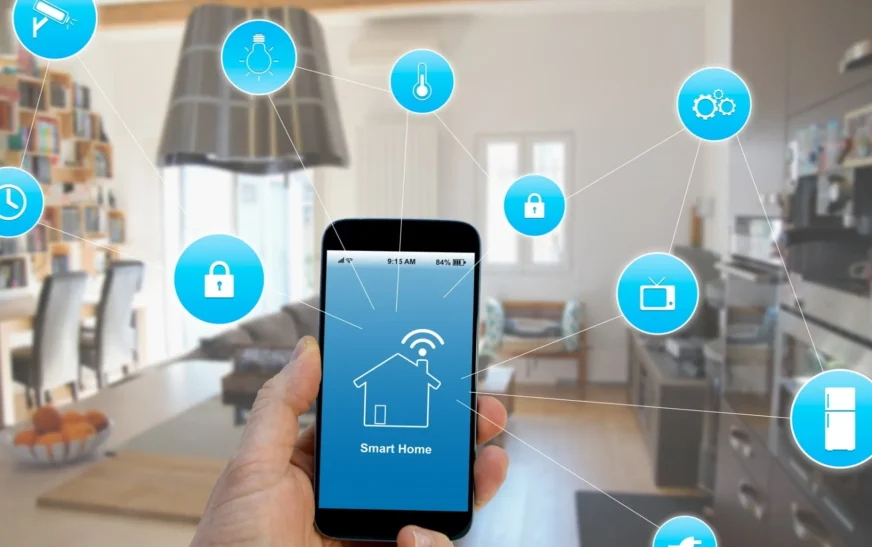Introduction
As technology continues to advance at a rapid pace, the concept of smart homes is evolving beyond mere convenience into a comprehensive, interconnected ecosystem that enhances our quality of life. Smart home technology, characterized by devices and systems that connect and communicate over the internet, is set to revolutionize the way we live, work, and interact with our surroundings. This article explores the current trends, future predictions, and implications of smart home technology in our lives.
The Current State of Smart Home Technology
Smart home technology has already made significant strides in recent years. With the proliferation of Internet of Things (IoT) devices, homeowners can now control various aspects of their homes through their smartphones or voice-activated assistants. Common smart home devices include:
- Smart Thermostats: Gadget like the Nest Learning Thermostat can learn user habits, optimizing heating and cooling for energy efficiency.
- Smart Lighting: Brands such as Philips Hue allow users to control lighting remotely, set schedules, and even change colors to match moods or activities.
- Smart Security Systems: Smart cameras and doorbells, like Ring, offer real-time surveillance, notifications, and remote monitoring capabilities.
- Voice Assistants: Devices such as Amazon Echo and Google Nest Hub serve as central hubs, allowing users to control other smart devices with voice commands.
Emerging Trends in Smart Home Technology
1. Increased Integration and Interoperability
One of the key trends shaping the future of smart home technology is the drive toward increased integration and interoperability between devices. As more manufacturers enter the market, there’s a growing demand for devices that can seamlessly work together. Initiatives like Matter, a unified connectivity standard, aim to simplify the integration of smart devices, allowing users to control a diverse range of products from different brands through a single platform.
2. Enhanced AI and Machine Learning Capabilities
Artificial intelligence (AI) and machine learning are poised to take smart home technology to new heights. As these technologies become more sophisticated, smart home devices will become better at understanding user preferences and habits. For example:
- Predictive Analytics: Smart systems could analyze data to predict when you’ll be home and adjust lighting and temperature accordingly, creating a comfortable environment before you even step inside.
- Personalized Experiences: AI can tailor suggestions based on user behavior, enhancing the overall experience. For instance, a smart kitchen could recommend recipes based on the ingredients you have at home.
3. Sustainability and Energy Efficiency
The future of smart home technology is closely tied to sustainability and energy efficiency. As environmental concerns rise, smart devices are being designed to help homeowners reduce their carbon footprint. Key innovations include:
- Smart Energy Management: Devices that monitor and optimize energy usage can lead to significant cost savings and reduced environmental impact. Smart meters and home energy management systems provide insights into energy consumption patterns.
- Solar Integration: The integration of solar panels with smart home systems allows homeowners to maximize energy efficiency, using renewable energy sources and reducing reliance on the grid.
Future Predictions for Smart Home Technology
1. Greater Adoption of Smart Appliances
The future will see a rise in the adoption of smart appliances, from refrigerators that manage groceries to washing machines that optimize water usage based on load size. As these appliances become more affordable and user-friendly, homeowners will increasingly incorporate them into their daily lives.
2. Enhanced Security Features
Security will continue to be a top priority in smart homes. Future advancements may include:
- Biometric Security Systems: Facial recognition and fingerprint scanning will become standard in smart locks, enhancing home security by allowing access only to authorized users.
- Advanced Surveillance Technologies: Smart cameras will integrate AI-driven facial recognition capabilities, enabling users to receive alerts about unfamiliar faces or activities.
3. Improved Health Monitoring
As health and wellness become more prominent, smart home technology will increasingly focus on health monitoring. Devices could track air quality, monitor sleep patterns, and even detect health issues through wearables connected to the smart home system.
Challenges to Overcome
While the future of smart home technology is promising, several challenges must be addressed:
- Privacy and Security Concerns: The interconnected nature of smart devices raises concerns about data privacy and security. Manufacturers must prioritize robust security measures to protect user information.
- Complexity and Usability: As more devices are introduced, the complexity of managing multiple systems can be overwhelming for users. Simplified user interfaces and education on how to use these devices effectively will be crucial.
Conclusion
The future of smart home technology promises to enhance our living environments through increased convenience, efficiency, and personalization. As advancements in AI, sustainability, and integration continue to unfold, smart homes will become more intuitive and responsive to our needs. However, it is essential to address challenges related to privacy, security, and usability to ensure that smart home technology benefits all users. Embracing this future will ultimately lead to a more connected, efficient, and sustainable way of living.






